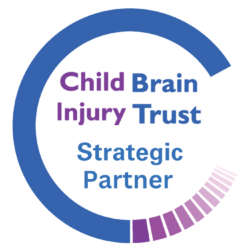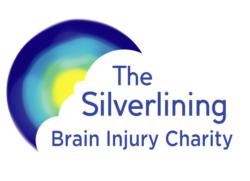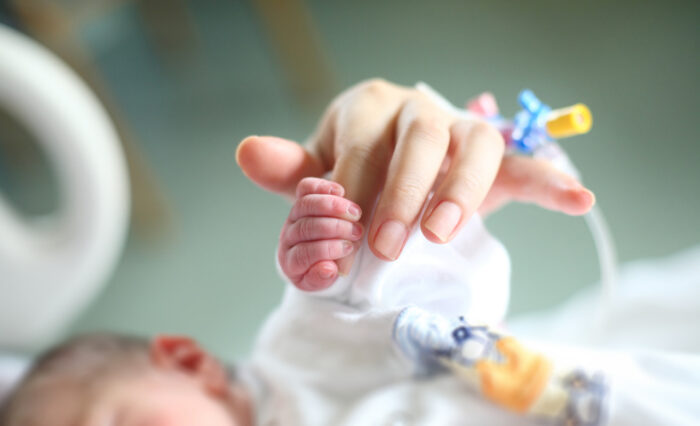This helpful guide is designed to provide information and advice for anyone who has suffered or is affected by a birth injury. We know the emotional and physical impacts birth injuries can cause, and we’re here to help.
Talk to our birth injury solicitors
If you need legal advice regarding a birth injury, don’t hesitate to contact our birth injury solicitors. Our legal experts are here to help you understand your options and navigate your claim with compassion and professionalism.
Call us free today on 0808 164 0808, or request a call back if you’d like one of our experts to call you.
1. Understanding birth injuries
Birth injuries can affect both mothers and babies, sometimes with lifelong consequences. In many cases, these injuries result from unavoidable complications. However, when medical negligence is involved, families deserve answers, accountability, and support. We’ll explain the different types of birth injuries that can happen before, during, or after labour, how they may occur, and when they may be linked to poor medical care.
Pre-birth negligence and pregnancy negligence
Pregnancy and maternity negligence, or pre-birth negligence, can have long-lasting consequences on both a mother and her baby. No pregnant mother should have to experience substandard care during pregnancy, or deal with any lasting health conditions caused by medical mistakes long after birth. Examples of pregnancy negligence can include:
- Failing to identify signs of infection;
- Missing an abnormality during a scan, or blood test;
- Failing to get a full health history from the mother, or failing to perform antenatal checks properly;
- Failing to treat underlying health conditions properly during pregnancy;
- Failing to discuss all the possible birthing options and the risks of each to give mothers control over their birthing journey;
- Misdiagnosis of an issue, or delay in diagnosis.
Ectopic pregnancy
We understand how worrying and upsetting ectopic pregnancies can be. Most commonly, this type of pregnancy is caused by pelvic inflammatory disease, which should be treated in a timely manner and not negligently left to cause further problems. We’ve helped many people and families take legal action following ectopic pregnancy negligence. Our client Lillian* was left with pain and depression following a mismanaged ectopic pregnancy, and we worked closely with her and her family to get the best outcome possible. Read Lillian’s story here >>
Pre-eclampsia
Pre-eclampsia occurs when a pregnant mother develops high blood pressure. This can lead to serious complications for both mother and baby. The condition can develop quickly and be life-threatening. Signs of pre-eclampsia include:
- Swelling in the face and hands;
- Severe headaches;
- Changes in vision;
- Severe pain in the upper abdomen.
Medical professionals should monitor mothers closely throughout their pregnancies to watch for signs of pre-eclampsia and should provide treatment as necessary.
2. During labour: Injuries to babies during birth
When a baby is injured during birth, it is an emotional and distressing time for parents and their baby. Facing the fact that a medical mistake may have caused harm to your baby can be difficult to process, which is why we’re here with you every step of the way.
Cerebral palsy
We understand the impact cerebral palsy can have on families and their babies, and we do everything we can to provide legal support and guidance to help people get the apology they deserve when medical professionals are negligent. Cerebral palsy has many causes, including:
- Hypoxic brain injury during birth (or asphyxia during birth, as below);
- Allowing labour to go on too long and delaying a C-section;
- Failing to monitor the baby’s heartbeat;
- Missing signs of foetal issues, including the umbilical cord being wrapped around the baby’s neck.
If you want to read more about cerebral palsy claims directly, please see our dedicated page >>
Erb’s palsy
Erb’s palsy affects the upper part of the brachial plexus; a network of nerves found in the neck and shoulder. A baby who suffers from Erb’s palsy may have limited movement in that shoulder or elbow, or might not be able to move the arm at all. Erb’s palsy has many causes, including:
- Prolonged birth;
- Incorrect use of forceps to assist birth;
- Delayed C-section if baby is stuck;
- Failure to try and correct baby’s breech position.
If you want to read more about Erb’s palsy claims directly, please see our dedicated page >>
Klumpke’s palsy
Klumpke’s palsy affects the lower part of the brachial plexus and affects the muscles in the forearm. A baby who suffers from Klumpke’s palsy may struggle with grip as they grow up, be unable to extend the forearm or may experience a ‘claw hand’ where the wrist and/or fingers are stiff. Klumpke’s palsy can also be caused by negligence during birth, much like Erb’s palsy.
Asphyxia during birth
Birth asphyxia is the term used for when a baby’s oxygen supply is cut off during birth, either completely or partly. Failure to identify this quickly and provide treatment is clear grounds for medical negligence. If a baby’s brain doesn’t get enough oxygen either before, during, or after birth, there’s a high risk of childbirth brain injury, or a hypoxic brain injury. This type of injury can cause conditions such as cerebral palsy and might cause cognitive problems and developmental delays as the child grows up. Asphyxia during birth may also cause:
- Damage to the baby’s internal organs, including the lungs, liver, heart, and kidneys;
- Imbalances in electrolytes, which can cause a baby to experience convulsions and/or shock.
Asphyxia during birth can also be fatal.
Ruptured placenta
Ruptured placenta can put a mother and baby at serious risk. It depends on the severity of the rupture, but even if it is minimal there can still be long-lasting consequences, such as:
- Premature birth;
- Stunted growth of the baby;
- Low birth weight;
- Complications with the placenta, including placenta accreta;
- Increased risk of stillbirth.
Stillbirth
Stillbirth can be caused by medical negligence. If your doctor or midwife fails to monitor your baby’s health properly during pregnancy or during labour, and your baby suffers, you may have a birth injury claim. Common signs of potential stillbirth that should be monitored include:
- Abnormal heartbeat;
- Reduced movement;
- High blood pressure in the mother.
“More than a third (34%) of women who have recently or plan to have a baby in the next two years are worried about a pre-existing condition affecting their pregnancy or birth”
3. During labour: Injuries to the mother during birth
While medical negligence can have a devastating effect on babies during birth, it can also affect mothers. If the healthcare team makes mistakes during labour or after delivery, a mother may be left with serious injuries that could have been avoided. Find out more about how we have helped mothers who have suffered injuries during birth.
Pelvic organ prolapse
Pelvic organ prolapse is a common condition that can happen after childbirth. It can occur when the pelvic floor muscles and tissues are weakened and no longer able to support the pelvic organs. Symptoms can include:
- Incontinence;
- Feeling of heaviness or pressure in the pelvis;
- Pain during sex;
- Bulging in the vagina.
If your doctor fails to monitor your recovery properly after childbirth, or fails to inform you of the signs to look out for, you may have grounds for a claim.
Vaginal and perineal tears
Tears to the vagina and perineum can happen during birth. There are four different degrees of tears, ranging from minor (first degree) to more severe (fourth degree). If a tear is not properly identified and treated during birth, this can cause long-lasting complications for mothers, such as:
- Pain during sex;
- Urinary incontinence;
- Infections;
- Problems with the pelvic floor;
- Long-term psychological issues.
Haemorrhage post-partum
Postpartum haemorrhage can be life-threatening if not identified and treated in time. Medical professionals must monitor mothers closely after childbirth to identify signs of haemorrhage and ensure appropriate treatment is provided. Failure to do so may result in serious complications, including:
- Shock;
- Severe anaemia;
- Long-term health problems.
Caesarean negligence
If a C-section is needed but medical professionals fail to act in time, there can be devastating consequences for both mother and baby. If the doctor does not discuss the option of a C-section when it is necessary or fails to act quickly enough to deliver the baby, this may be grounds for a claim. We can help with your caesarean claims, contact us today.
“23% of mothers who had a vaginal birth vs 30% of those who had a caesarean did not rate their during birth care positively”
4. Making a legal claim
The process of making a birth injury claim can seem complex, but our team is here to help simplify it for you. We guide you through each step, ensuring you feel supported throughout.
Birth injury claims process
In the first instance, we recommend you get in touch with our team. You can call us free on the phone, or use the form on our contact page to request a call back.
Read more about the medical negligence claims process here >>
Legal fees
We understand that the financial aspect of legal claims can be daunting. Our team is here to provide transparent information regarding our fees and any potential funding options available to you.
“Just under half of UK women (46%) are unaware that misdiagnosis is legal negligence ”
Frequently asked questions
If you have any questions about your situation, our team of expert solicitors is here to help. Below are some frequently asked questions we receive from clients regarding birth injury claims.
How much compensation for birth injury claims?
Every individual we help is different and may experience a birth injury in a different way to someone else, so we cannot give a definitive answer on compensation amounts. What we can say, is we’ll keep you and your loved ones updated on your case throughout the legal process and will give you full transparency on compensation.
Will I have to go to court for my birth injury claim?
We understand how this can be daunting, but rest assured we do everything we can to settle your claim outside of the court. Our experts help many people and families get the compensation the deserve before having to involve the courts.
If I’m not happy with my current solicitor, can I bring my claim to you?
Yes, of course you can. If this is something you’d like to speak with us about then please call us, or request a call back so we can make sure the transition process is as smooth as possible.
Can a birth injury cause autism?
Under some circumstances there may be a higher risk of autism due to different types of birth injury, but generally as medical negligence solicitors we wouldn’t give medical advice on this condition.
I’m not sure if I have a birth injury claim or not. Will you be able to tell me?
Of course. If you call us or request a call back, our friendly team will talk with you and get an understanding of what’s happened, and we’ll be able to discuss any next steps with you.
5. Why choose us?
Hear from our clients about their experiences. We have been able to help many families navigate their birth injury claims. Our team understands the emotional challenges, and we work closely with families to ensure they get the support they need.
Client stories
- Natalie’s story: Missed third-degree tear during birth led to severe faecal incontinence
- Tiffany’s story: Delays and communication failures during labour led to baby’s stillbirth
- Bekki’s story: Medical negligence claim settled after hospital failures cause stillbirth
- Maya’s story: C-section delay and wrong positioning caused birth injuries to baby
- Ellen’s story: Undiagnosed ectopic pregnancy lead to emergency surgery
- Chantelle’s story: Pregnancy misdiagnosed as ectopic
In the media
We frequently contribute to media discussions about birth injuries and medical negligence. Our expert solicitors are committed to raising awareness and helping families understand their rights. One such campaign we’re currently working on is raising awareness of stillbirths; our PR team asked every health trust in England via an FOI request for the number of medical negligence claims relating to stillbirths, between 2012/13 and 2022/23. You can read our coverage so far below:
- Baby deaths expose faults in NHS care
- Two babies lost to maternity blunders every week – with comments from Nikki Fahey
Who we’re partnered with
We work with a variety of organisations and healthcare professionals to ensure our clients receive the best possible care and support.



Why choose Lime Solicitors to handle my claim?
We’re a team of experienced experts who have been handling these types of claims for decades, and we understand the emotional and financial impact they can have on people and their families. We’re highly ranked in both Chambers and the Legal 500, across multiple regions in the UK. We also have ex-medical experts within the team who are well-versed in the medical process. If you’d like to read some of our client reviews, too, you can find them here.
6. Get in touch
Legal and other support
If you or a loved one is affected by a birth injury, support is available. Our legal team can guide you through the process, ensuring you understand your rights and the options available to you.



